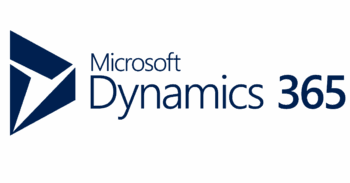d.velop Process Studio
Greater flexibility enabled by
process management software
Business processes are an integral part of every organisation – regardless of industry, size or department. Many of them are document-centred and often follow the same pattern, such as when complying with retention and deletion periods. These routines are usually carried out by the same employees. With the d.velop process studio, our BPMN 2.0-based process management software, such tasks can be designed efficiently, automated and independently of location. Thanks to its no-code approach, specialist departments can also take an active role.
Form designer: Easily create forms
With the Form Designer, forms can be customised effortlessly with just a few clicks and saved directly within the workflow.
- Use existing or newly created forms within the process
- Simple drag-and-drop creation
- Responsive web forms
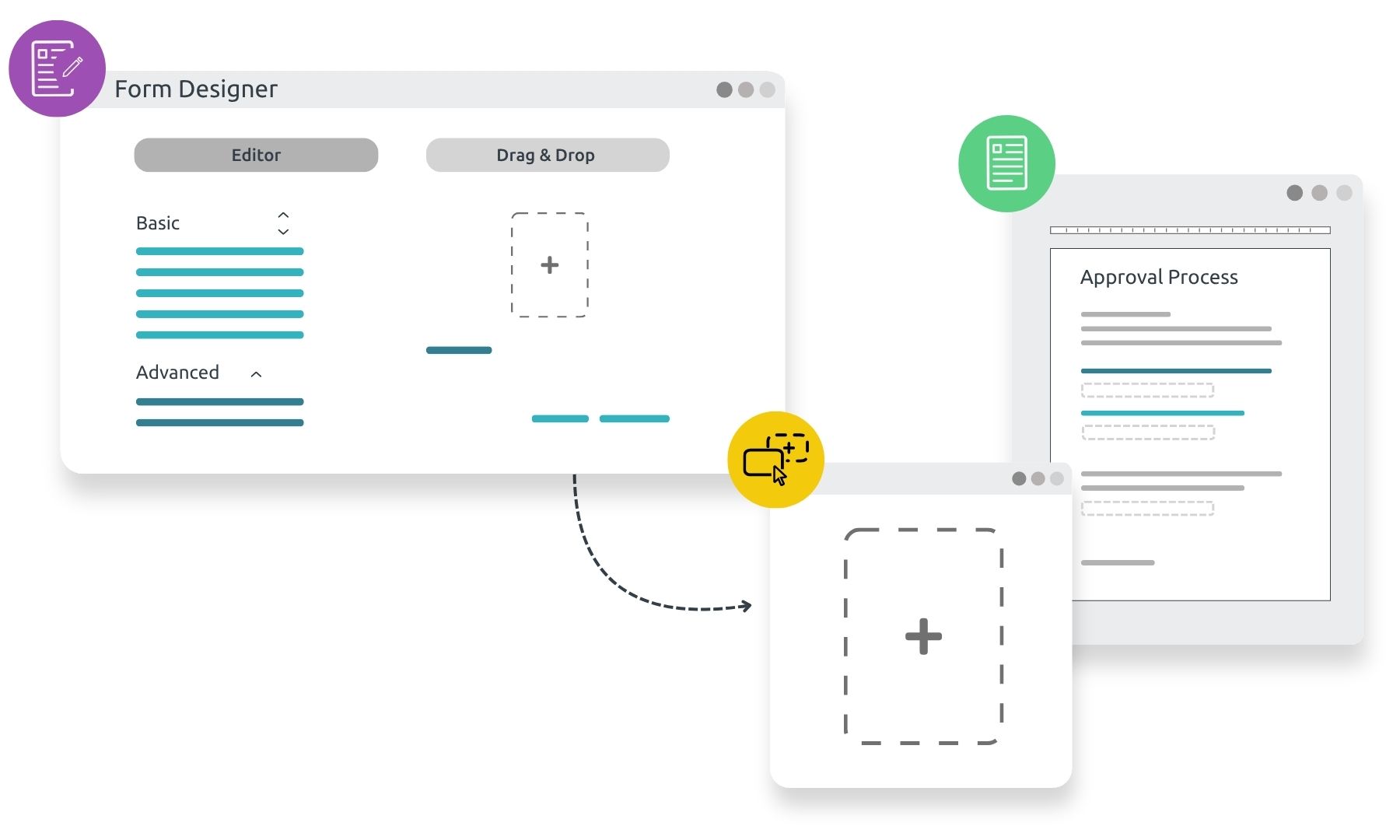
Template library: A faster start with ready-made templates
Create processes efficiently with access to templates from both the d.velop Template Library and your own use cases.
- Quick implementation thanks to existing templates
- Deployment of standardised processes
- Knowledge sharing within the d.velop community
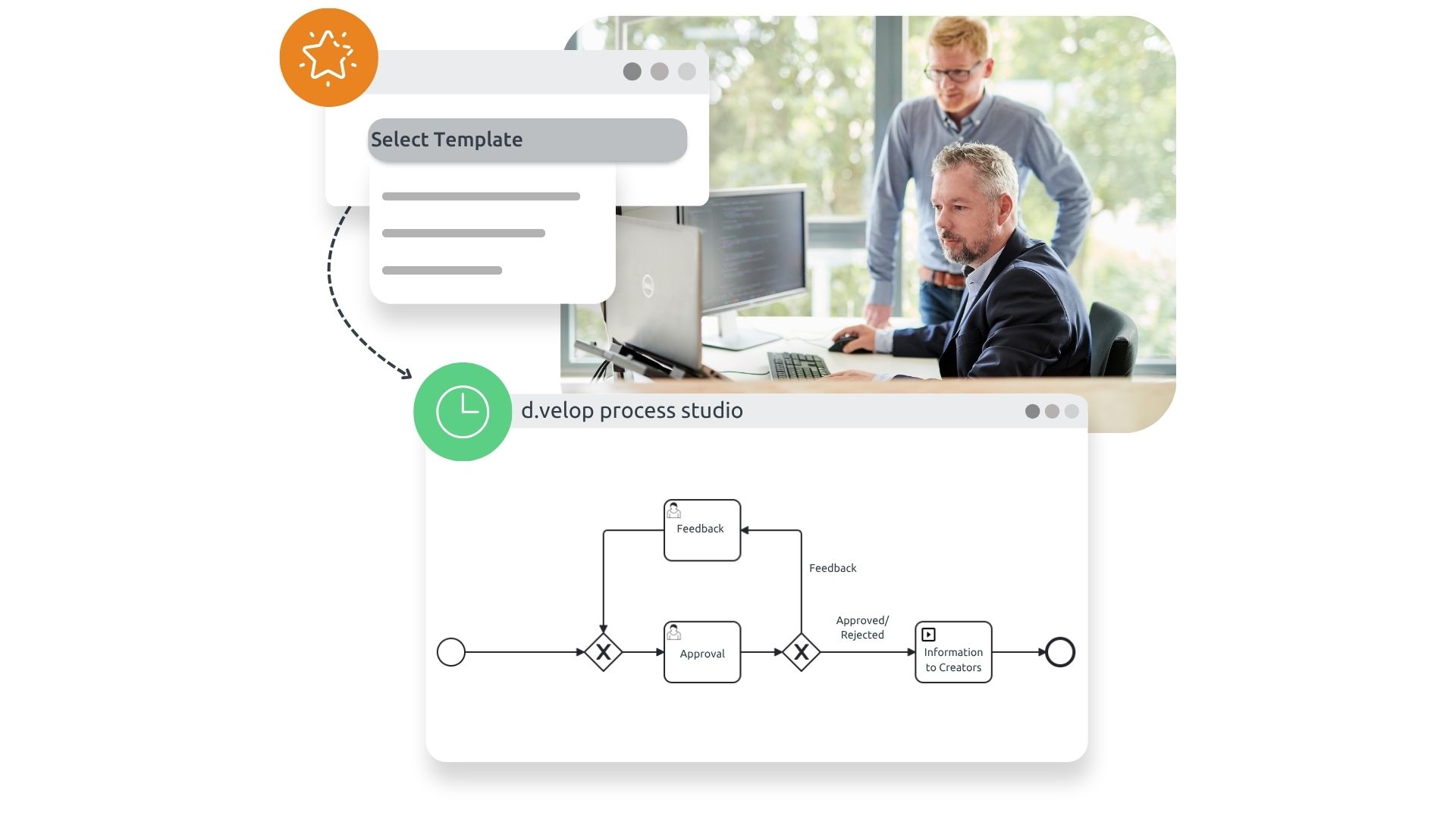
Scripting engine: Endless possibilities through scripting
Tailor-made adjustments and automated business processes for maximum flexibility and unlimited potential.
- Integration of third-party systems
- Customisation of workflows
- Access to a comprehensive JavaScript library (Node.js)

d.velop process studio
Workflow management with d.velop process studio made easy
Adapt digital business processes to your individual requirements at any time with our visual editor – even without IT skills. You also have the option of seamlessly integrating external systems via interfaces.
- No-code approach
- Easy modeling
- Integration of additional systems and data
Popular use cases of the
d.velop process studio
How to map approval workflows digitally.
Approval processes occur frequently within organisations. With the d.velop process studio, you can digitalise them easily – even without advanced IT skills.

How to automate your business travel request.
Use the d.velop process studio to implement your business travel request fully digitally. Thanks to model-based process design in line with BPMN 2.0 and the integration of an intelligent form, the request is captured in a structured way, checked automatically and approved without any media discontinuities.

How to implement an automated budget approval process.
Discover how simple it can be to implement the budget approval process efficiently with the powerful d.velop process studio. Learn step by step how to digitalise and automate the entire workflow, saving valuable time and reducing errors.
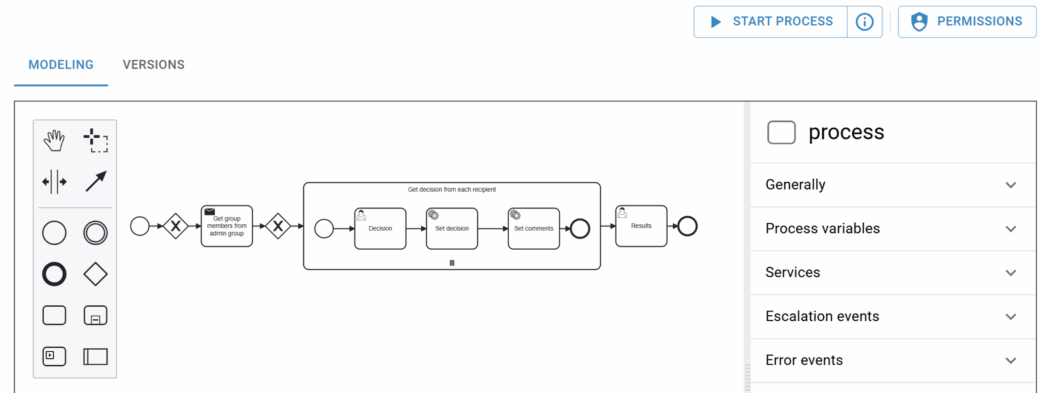

Integrations of the d.velop process studio
Integrate process management software easily
and work across systems
With the d.velop process studio, you can overcome system boundaries. Thanks to the powerful REST API, you can, for example, automatically populate forms with data from third-party systems. In addition, the Scripting Engine allows you to integrate third-party systems into your workflows, and the Microsoft Power Platform connector enables the integration of other systems, such as Microsoft Teams, into your process management tool.
The perfect duo for process digitalisation
Workflows + Document management
If your business processes are still handled manually and on paper, and you want to speed up their execution, you should combine process management software with a document management system (DMS). In particular, the combined use allows you to:
- Eliminate media breaks
- Increase transparency
- Minimise sources of error
- Promote collaboration
- Standardise workflows
- Reduce processing times
Intelligent Document Processing
Experience AI-powered document processing
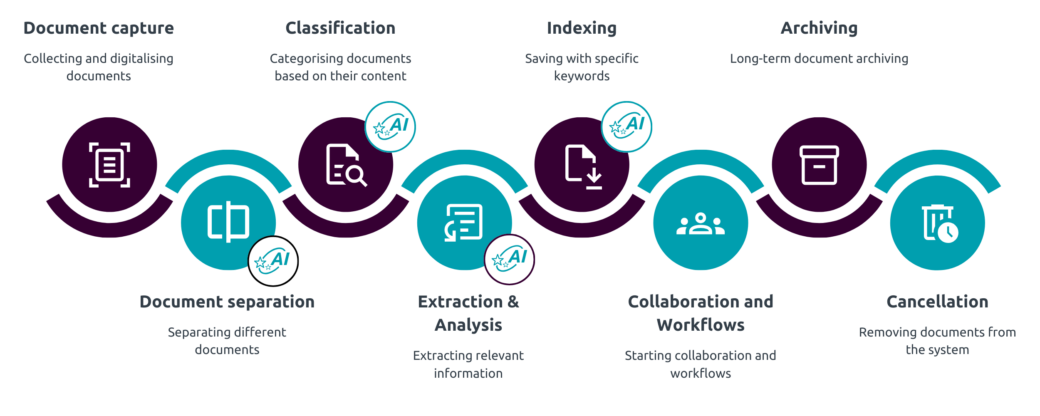
d.velop platform
Unlock the full potential of d.velop.
DMS, ECM, EIM or simply: Connected knowledge
Productive, intelligent, secure: your d.velop tools.
Digitise, structure, store and make information accessible: Our d.velop platform solutions are always tailored to your needs and provide knowledge seamlessly – whether for employees, customers or partners. This not only reduces process costs and time, but also relieves your team and creates space for innovative ideas.
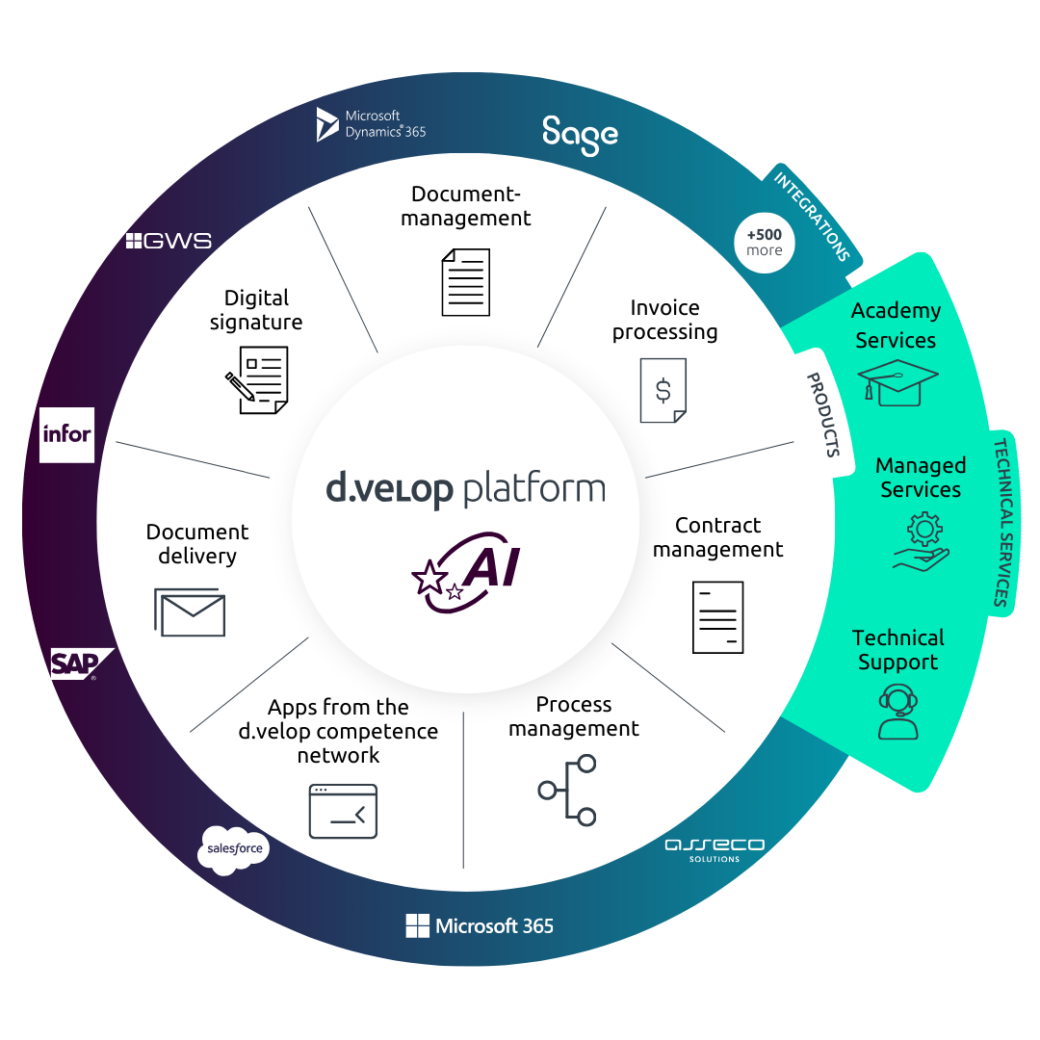
News & Resources
Process management in focus
FAQ
Frequently asked questions and answers about process digitalisation
Process digitalisation refers to the transformation of manual or paper-based business processes into digital formats using technologies such as automation, data analysis, and workflow management systems.
Process digitalisation enables a more efficient handling of business processes, reduces errors, and enhances productivity. Additionally, it provides the foundation for further technologies, such as artificial intelligence and machine learning.
The benefits of process digitalisation include, among others, faster task execution, reduced human errors, improved transparency and traceability of processes, as well as better integration with other systems. Additionally, process digitalisation provides a solution to the increasing shortage of IT professionals.
Some of the most important aspects to be mindful of include: process analysis, technology selection, integration with your existing systems, high user acceptance, good data quality, and security as well as data privacy. Make sure to work with an experienced digitalisation partner who has managed numerous client projects.
With the d.velop process studio, specialist departments can independently map and automate their processes. The department describes the process in the d.velop process studio and indicates which information is needed at which points. The IT administrator ensures that the necessary information from other systems is made available at the respective points.
To successfully automate processes and implement them in daily operations, there are several points to consider. Start with planning and design. The specialist department outlines their process and describes, directly in the d.velop process studio, exactly which information is needed at which point. Once the planning of the new approval process is complete, it’s time for the (technical) implementation. After successfully introducing an approval process, it should be regularly monitored and optimised.
Contact & Consultation
We connect data and people – and look forward to hearing from you.
Curious? We’d be happy to show you our software.
Simply request a live demo.
